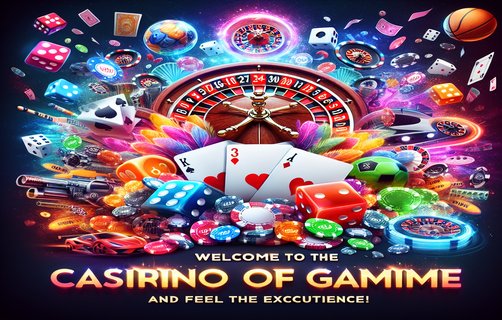The Intricacies of Game Mechanics: Luck, Strategy, and Leadership
खेल की जटिलताएँ: किस्मत, रणनीति और नेतृत्व

In the world of tabletop and board games, the interplay of luck and strategy creates an engaging experience for players. The core mechanics—dice-based luck, random draws, and board squares—shape the outcome of the game, influencing not just the players' decisions but also the dynamics of social interaction. Understanding these elements enhances not only gameplay but also player satisfaction.
Dice-based luck introduces an element of unpredictability. For instance, rolling dice can turn the tides of a game, allowing even the least prepared player to achieve unexpected victories. This randomness, while often frustrating, adds excitement to the game. On the flip side, players can develop strategies to mitigate luck's impact, such as saving resources to deploy at critical moments. This delicate balance between luck and skill fosters a deeper sense of engagement.
Random draws—the mechanism of drawing cards or tokens—similarly influence strategies. The anticipation of what might come next creates suspense and encourages players to adapt their tactics on the fly. This random element compels players to consider not only their current position but also the potential future moves of their opponents. The game board, often divided into squares, becomes a dynamic battlefield where strategic planning must be balanced with an awareness of what resources are available through the random draws.
Event rules further complicate gameplay. These rules might dictate unforeseen challenges or opportunities, requiring players to adjust their strategies continuously. Some events might encourage cooperation, forcing alliances, while others could incite direct competition. Understanding these rules and navigating their implications is critical for victory.
Additionally, blockadelocations on the board add another layer of strategy. These spaces can limit movement or implement penalties, effectively altering the flow of gameplay. Players must anticipate how to navigate around these obstacles, infusing a strategic component into what could be a simple movement across the board.

In this intricate landscape of gameplay, the role of a sacred leader can significantly shift dynamics. A player's character may be endowed with unique abilities, serving as a moral compass or strategic pivot point. Their decisions can influence collective actions, establishing a blend of individualism and teamwork. The leader's choices might dictate resource allocation, rallying allies, or even sacrificing personal gain for the greater good.
Finally, resource counters are the lifeblood of interaction in many games. They represent everything from currency to troop units, and players must manage these wisely. Effective resource management can mean the difference between victory and defeat, highlighting the importance of planning and foresight in gameplay.
In conclusion, the blend of dice-based luck, random draws, board spaces, event rules, blockadelocations, leadership dynamics, and resource counters forms a rich tapestry of interaction in board games. Players must be adaptable strategists who can read the game landscape, plan effectively, and respond to the ever-changing conditions dictated by these factors. This complexity not only makes board games engaging but also offers a reflection of the unpredictability of life itself.
टेबलटॉप और बोर्ड खेलों की दुनिया में, किस्मत और रणनीति का आपसी खेल खिलाड़ियों के लिए एक आकर्षक अनुभव पैदा करता है। मुख्य यांत्रिकी—आधारित किस्मत, यादृच्छिक ड्रॉ, और बोर्ड वर्ग—खेल के परिणाम को आकार देती है, न केवल खिलाड़ियों के निर्णयों को प्रभावित करती है बल्कि सामाजिक इंटरैक्शन की गतिशीलता को भी प्रभावित करती है। इन तत्वों को समझना न केवल खेल को बढ़ाता है बल्कि खिलाड़ी की संतोषजनकता को भी।
डाइस-आधारित किस्मत एक अप्रत्याशितता का तत्व पेश करती है। उदाहरण के लिए, डाइस रोल करना खेल के बादलों को बदल सकता है, जिससे सबसे कम तैयार खिलाड़ी को भी अप्रत्याशित जीत हासिल होती है। यह यादृच्छिकता, जबकि अक्सर निराशाजनक होती है, खेल में उत्साह जोड़ती है। इसके विपरीत, खिलाड़ी रणनीतियों को विकसित कर सकते हैं ताकि किस्मत के प्रभाव को कम किया जा सके, जैसे कि महत्वपूर्ण क्षणों पर तैनात करने के लिए संसाधन बचाना। किस्मत और कौशल के बीच यह नाजुक संतुलन गहरे जुड़ाव की भावना को बढ़ाता है।
यादृच्छिक ड्रा—कार्ड या टोकन खींचने का तंत्र—अससी रणनीतियों को प्रभावित करता है। अगली चीज़ का क्या आने वाला है, इसकी आशा सनसनी पैदा करती है और खिलाड़ियों को तुरंत अपनी रणनीतियाँ अनुकूलित करने के लिए प्रोत्साहित करती है। यह यादृच्छिक तत्व खिलाड़ियों को उनके वर्तमान स्थिति पर विचार करने के लिए मजबूर करता है लेकिन साथ ही उनके विरोधियों के संभावित भविष्य की चालों पर भी ध्यान देना पड़ता है। खेल का बोर्ड, जो अक्सर वर्गों में विभाजित होता है, एक गतिशील युद्धभूमि बन जाता है जहां रणनीतिक योजना को यादृच्छिक ड्रा के माध्यम से उपलब्ध संसाधनों की जागरूकता के साथ संतुलित होना चाहिए।
इवेंट नियम खेल में और जटिलता जोड़ते हैं। ये नियम अनपेक्षित चुनौतियों या अवसरों को निर्धारित कर सकते हैं, खिलाड़ियों को निरंतर अपनी रणनीतियों को समायोजित करने की आवश्यकता होती है। कुछ घटनाएँ सहयोग को प्रोत्साहित कर सकती हैं, मजबूर करते हुए गठजोड़, जबकि अन्य सीधे प्रतिस्पर्धा को प्रज्वलित कर सकती हैं। इन नियमों को समझना और उनके निहितार्थों को नेविगेट करना जीत के लिए महत्वपूर्ण है।
इसके अतिरिक्त, बोर्ड पर अवरोध स्थान एक और स्तर की रणनीति जोड़ते हैं। ये स्थान आंदोलन को सीमित कर सकते हैं या दंड लागू कर सकते हैं, खेल के प्रवाह को प्रभावी ढंग से बदल सकते हैं। खिलाड़ियों को इन बाधाओं के चारों ओर नेविगेट करने की योजना बनानी चाहिए, जो इस खेल को एक आसान बोर्ड को पार करने की बजाय एक रणनीतिक तत्व में बदल देती है।
इस खेल की जटिलता में, एक पवित्र नेता की भूमिका गतिशीलता को महत्वपूर्ण रूप से बदल सकती है। एक खिलाड़ी का चरित्र अनूठी क्षमताओं के साथ सम्पन्न हो सकता है, जो नैतिक कंपास या रणनीतिक घूर्णन बिंदु के रूप में कार्य करती है। उनके निर्णय सामूहिक क्रियाओं को प्रभावित कर सकते हैं, व्यक्तिगतता और टीमवर्क का एक मिश्रण स्थापित कर सकते हैं। नेता के विकल्प संसाधन आवंटन, सहयोगियों को एकत्रित करने या यहां तक कि बड़े भले के लिए व्यक्तिगत लाभ का बलिदान करने को निर्धारित कर सकते हैं।
अंत में, संसाधन काउंटर कई खेलों में बातचीत का जीवन रक्त हैं। वे सब कुछ मुद्रा से लेकर टुकड़ी इकाइयों का प्रतिनिधित्व करते हैं, और खिलाड़ियों को इन्हें समझदारी से प्रबंधित करना चाहिए। प्रभावशाली संसाधन प्रबंधन जीत और हार के बीच का अंतर बना सकता है, जिससे खेल में योजना और पूर्वदर्शिता के महत्व को उजागर किया जा सकता है।
निष्कर्ष में, डाई-आधारित किस्मत, यादृच्छिक ड्रॉ, बोर्ड स्थान, इवेंट नियम, ब्लॉक स्थितियां, नेतृत्व गतिशीलता और संसाधन काउंटर का मिश्रण बोर्ड गेम में बातचीत के लिए एक समृद्ध वस्त्र बनाता है। खिलाड़ियों को अनुकूलित रणनीतिकार होना आवश्यक है जो खेल परिदृश्य को पढ़ सकें, प्रभावी ढंग से योजना बना सकें, और इन कारकों द्वारा निर्धारित निरंतर परिवर्तनशील परिस्थितियों के प्रति प्रतिक्रिया कर सकें। यह जटिलता न केवल बोर्ड खेलों को आकर्षक बनाती है बल्कि यह स्वयं जीवन की अप्रत्याशितता का एक प्रतिबिंब भी पेश करती है।

comments
GamerGuru
This article beautifully captures the essence of game mechanics, especially how luck and strategy intertwine.
BoardGameNerd
I loved the section on sacred leaders – it adds such depth to player dynamics!
DiceRoller90
Fantastic insights on resource management! It's often overlooked but so crucial!
StrategyMaster
Event rules can make or break a game. Great point about adapting to changes!
BlockadeBuster
Blockade locations add so much tension to gameplay. Thanks for highlighting that!
ResourceWizard
Resource counters are everything! Managing them correctly is a game-changer.